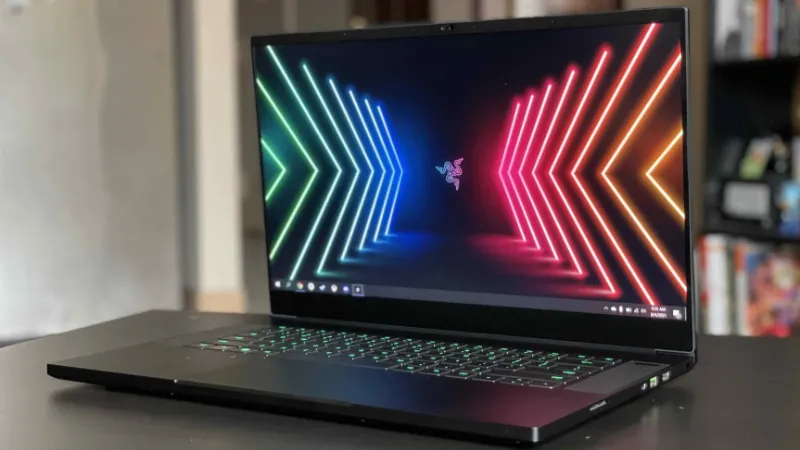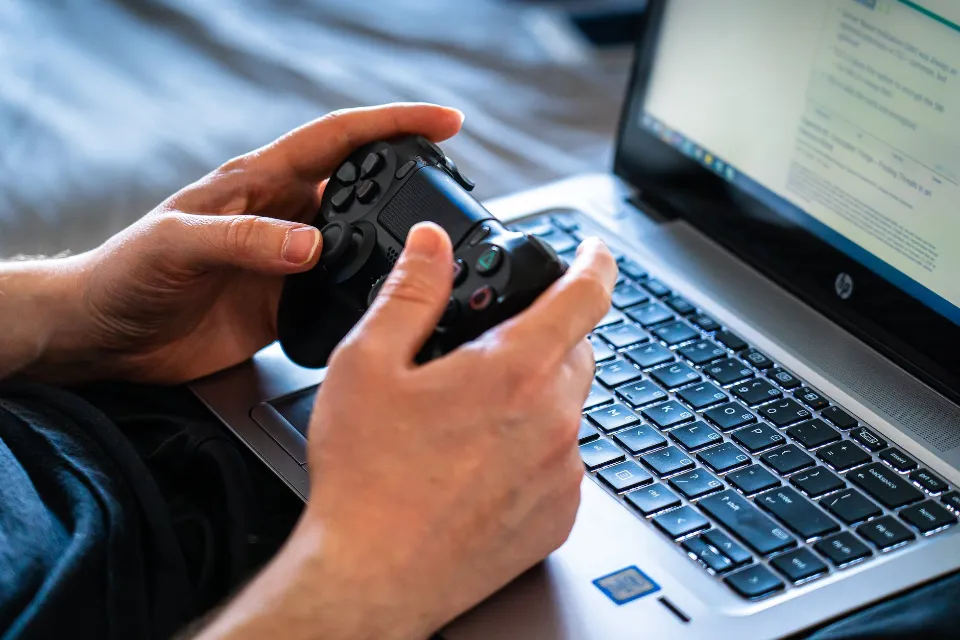
The big question for any prospective buyer is how long a gaming laptop will last specifically and how to get the most value for your money.
Without maintenance, it will last 5 – 6 years for a gaming laptop, or 3 – 4 years with cheaper budget regular laptop featuring a plastic chassis. The parts will last for at least a decade, but as games become more visually complex, the top-of-the-line parts won’t perform as well for as long.
Please read on for more detailed information.
What Affects a Gaming Laptop Lifespan?
Overall build quality plays a huge role here, and that’s one of the reasons it’s worth saving up to spend more on a higher end model when shopping for a gaming rig.
By purchasing a more expensive model that doesn’t need to be replaced in a few short years, you may actually end up saving money if you use your device for five to six years.
Aside from the quality of components and the structural integrity of the design, there are several specific parts that can drastically affect overall lifespan.

Graphics Processing Unit Heat Dissipation
The heat produced by high end GPUs is without a doubt one of the main enemies of gaming laptops. Parts that are exposed to heat for prolonged periods of time tend to malfunction and break down more quickly.
This means that when comparing gaming machine specs, any model with cutting-edge cooling options is always the best option.
For instance, the HP Omen has CoolSense technology that can recognize when the bottom of the laptop is becoming too warm.
Instead of a standard DVD drive, the Predator line of gaming computers from Acer uses FrostCore drives, which add an extra fan for more cooling.
Future Proofing Against Graphics Upgrades
You must take into account a component’s usefulness over a longer period of time as new games demand better hardware, in addition to knowing which parts will eventually break down and when.
..an RTX system ensuring your gaming laptop will continue to run any game on ultra settings for years and years to come…
The RTX graphics cards are currently the best available. The fastest, most potent graphics available in 2019 are provided by these pricey devices.
Those brand-new RTX enabled laptops aren’t quite worth it (yet), though, as currently very few games actually take full advantage of their features.
However, choosing an RTX system will ensure that your purchase is future-proof and that your gaming laptop will continue to run any game at ultra settings for years and years to come.
On the other end of the spectrum, even though GTX 1050 Ti systems are becoming more affordable, they won’t continue to provide you with long-lasting high-end gaming performance.
With the most recent AAA games, those cards are already becoming outdated and won’t deliver stable frame rates at high settings. While a laptop with a 1050 card may run for six years or longer, there will eventually come a time (and quite soon) when it cannot handle new games at all.
Processor Bottlenecks
The processor will have a greater impact on the practical lifespan of your gaming rig than the graphics card.
The best course of action is to choose the fastest, most effective, and most potent CPU you can afford within your spending limit.
Why exactly is that?
While other components, like the RAM and hard drive, can be changed over time, your laptop CPU is typically fixed in place.
What Makes a Good CPU for a Gaming Laptop?
Every computing device must have a CPU. To play games like first-person shooters and online multiplayer games, you need a gaming laptop with a high-performance CPU. Lag and slower loading times are signs that the CPU in your laptop is beginning to fail.
Most gaming laptops come with either Intel or AMD CPUs. In particular, the Intel Core i5 and Core i7 of the 11th generation are the most reliable Intel processors for gamers, while the Ryzen 5 and 9 are the ideal gaming processors from AMD. You should also consider the number of cores in a laptop’s processor. Generally speaking, performance increases with core count. Hexa- and Octa-core processors are advised for gaming as the common dual-core processor can be frustrating.

Proper Care and Maintenance Will Make Your Laptop Last Longer
There is a common belief that anything you take care of will last longer. If care is taken, a gaming laptop can last longer. Even though the performance of gaming laptops has improved, the parts are still vulnerable and have a limited lifespan. So, if the components are broken or damaged, it can affect your gaming laptop. These precautionary measures are to be taken:
- After every six months, clean your laptop regularly.
- Keep your laptop out of the direct sunlight and heaters because they can damage it.
- Keep your antivirus and software updated.
- Upgrade the components of the laptop used mainly like RAM and hard drives to achieve perfection with the updating technology.
- Don’t skimp on price; instead, choose the best laptop for your needs and budget.
- Keep the laptop cool.
What’s the Battery Life of a Gaming Laptop?
1-2 years is the standard battery life of a gaming laptop, after this period the battery needs a replacement. Normal laptops give more battery backup than other laptops, but it doesn’t mean that gaming laptops are not good, this is only related to the performance you are getting from your device.
Does Gaming Reduce Laptop Lifespan?
Your laptop’s lifespan will be shortened by gaming, particularly if you play for extended periods of time. A laptop’s components may overheat if you play video games for hours on end. Laptop fans are not as powerful to support heavy use as desktop fans, so your laptop’s parts may deteriorate more quickly.
In order to support a lighter, thinner form factor, many modern laptops have tiny fans. Regular laptops can’t effectively dissipate the heat produced by intense gaming, as a result.
As a result, it is not advised to play games for extended periods of time on a regular laptop. Doing so may negatively impact your CPU and, ultimately, shorten the lifespan of your laptop.
Comparatively, gaming laptops are typically larger and bulkier to accommodate stronger, bigger fans. However, even laptops designed for gaming can succumb to overheating if not properly cared for, which is why it is so important to replace the thermal paste yearly and clean the fans monthly.
Do Gaming Laptops Last Longer Than Normal Laptops?
Due to their superior fans and components, gaming laptops last much longer than standard laptops. A regular laptop won’t be able to withstand frequent gaming sessions the same way a gaming laptop can. When handled with care and only occasionally used, a gaming laptop can last for almost ten years.
With normal laptops, you’re also going to have a much harder time fixing and replacing internal parts that may break. Manufacturers occasionally purposely design standard laptops so that specific parts cannot be changed. As a result, if one component fails, the entire laptop crumbles into a brick.
While this is also true for some gaming laptops, many gaming laptops have modular components that you can replace and upgrade as you see fit. Due to the ability to easily replace damaged parts rather than having to buy a new laptop entirely, this lengthens the lifespan of the laptop.
Summary: Keeping Your Gaming Laptop Alive
The cost of a worthwhile machine is the main obstacle keeping would-be gamers from entering the world of high end portable gaming.
Particularly given how quickly technology becomes outdated and replaced, gaming laptops can be a sizable investment that is difficult for consumers on a tight budget to justify.
..you can reasonably expect your gaming laptop to last between 3-6 years..
In most cases, you can reasonably anticipate your gaming laptop to last between 3 and 6 years, though the precise time frame can vary between manufacturers and models.
At that point, you will either experience hardware failure, or your laptop’s specs just simply won’t be able to keep up with newer games. You can get more life out of your machine with:
- Regular maintenance
- Cleaning out ports with canned air
- Careful handling
- Changing battery charging habits
- Taking care of your SSD or HDD
- Managing heat with proper cooling methods
- Occasionally replacing parts such as RAM
- Planning ahead for hardware failure by having an external drive or monitor available



